Death of a Salesman review: A Black Willy Loman ponders who gets access to The American Dream
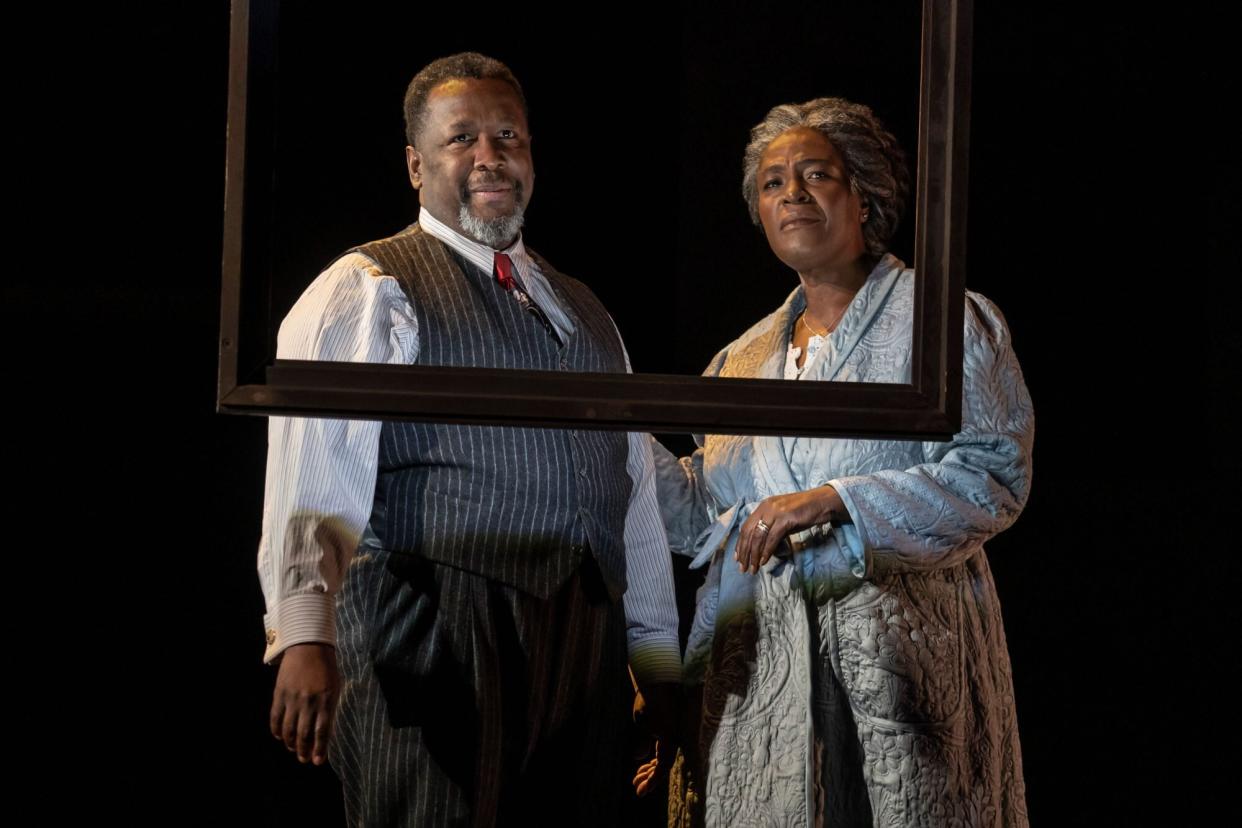
- Oops!Something went wrong.Please try again later.
- Oops!Something went wrong.Please try again later.
There's never not a good time to revive Death of a Salesman, a quintessential play about The American Dream, or rather, the fantasy, failure, and death of The American Dream. Since the play premiered in 1949, the late Arthur Miller's Greek tragedy for the land and home of the free and brave has been relevant at various points in the nation's history — the question is how to make it vital.
London's Young Vic production of the Miller classic has done just that. After a triumphant run in London's West End, the classic comes to Broadway at the Hudson Theatre, with Wendell Pierce reprising his Olivier-nominated role as Willy Loman and Sharon D. Clarke returning as his long-suffering wife Linda, for which she won the 2020 Olivier for Best Actress. Both are sensational, imbuing the relationship between Willy and Linda with genuine warmth — they're a joy to watch dancing in their kitchen in a rare moment of peace, just as they break your heart knowing that the darkness is only temporarily stayed.

Joan Marcus
Pierce's Willy Loman is a tragic man trying desperately not to be a tragedy. He's got a lot of life in him, and even as it slowly drains out of Willy, Pierce remains the beating pulse at the show's center, delivering monologues with a rapid dexterity that erupts into chaotic confusion, evidence of Willy's decades of salesmanship, in decline. As Linda, Clarke gives dignity and dimension to a character confined to the house and most often a bathrobe. The "long-suffering wife" is, by definition, a thankless role, but in Clarke, Linda Loman is a towering figure of strength whose love keeps her husband alive and her family together, and her suffering is a burden she willfully carries. Not one thrust upon her.
Premiering in post-war, pre-McCarthy 1949, Death of a Salesman grappled with what it meant to be a failure as a man. In a nation built on the myths of great men, what does it mean to be nothing special at all? Willy Loman had big dreams for himself, and for his sons Biff and Happy. "There's greatness in you, Biff," he tells his eldest. That they all turned out to be mediocre-at-best haunts Loman till his last days. When his next door neighbor Charley and his "anemic" son Bernard are what he had hoped for himself and his boys, how and why are they such failures? And who failed whom? Did Willy fail his sons, or vice versa, or were they all failed by America?
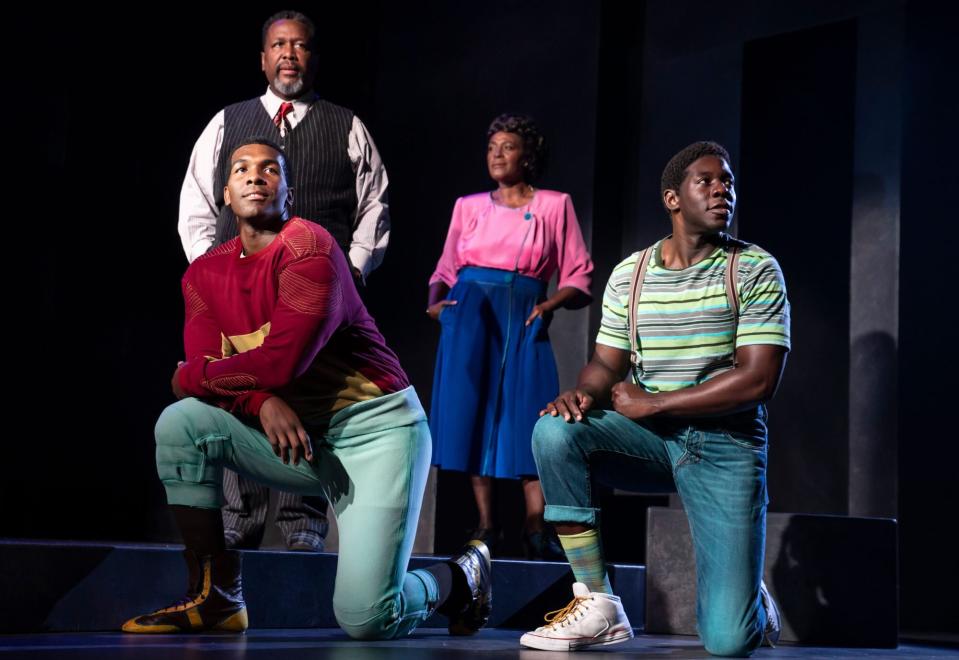
Joan Marcus
These questions are all well and good when you're white, but to be a Black Willy Loman is to grapple with not only being a mediocre man, but being a man at all. When the country on which your dreams rely denies your very manhood, you have to be not only great to succeed — you need to be a miracle. Tony-winner André De Shields, then, is perfectly cast as the late, exceedingly great Ben Loman, who walked into the jungle at 17 and walked out at 21: "Rich!" Ben is a ghost existing in flashback and in Willy's fracturing imagination, representing all the things Willy could never be.
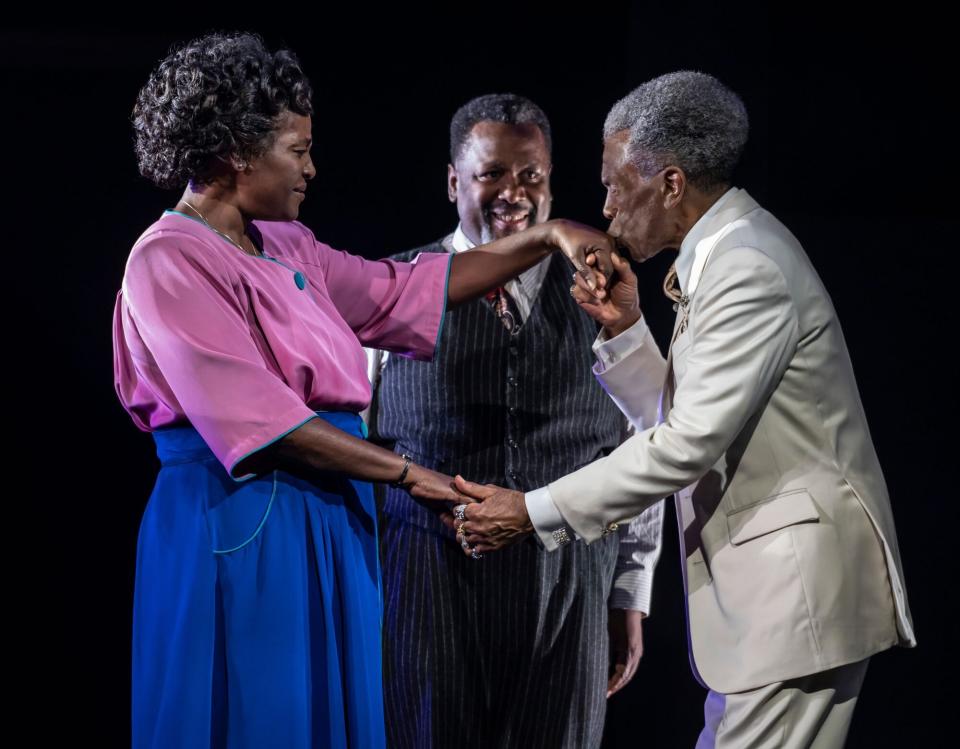
Joan Marcus
As Ben, De Shields floats in (not literally, but almost) in a cloud of smoke with each appearance, his ethereal grace as a performer unbent by his 76 years, inspiring, or taunting Willy with what could've been had he just gone with him to some white whale of a trip to Alaska to make his fortune. Ben is Willy's example that success is possible if ... if you walk into the jungle and find a diamond mine. Ben's success is not the product of hard work but simple luck. And this is upon what Willy Loman builds his entire life. And what he instills in his sons. The idea that success can happen to anyone if they want it enough. But he neglected to mention that luck had anything to do with it.
Khris Davis, in his Broadway debut, plays Biff Loman, the golden boy who's lost his luster. Physically, Davis is a perfect Biff — both he and McKinley Belcher III's Happy are every inch the "Adonises" their father sees them as. Davis' delivery, however, was sometimes so exaggerated to wander into Eddie Haskell "Gee, Mrs. Cleaver" territory, both as a 34-year-old man and in flashback as a 17-year-old boy. Perhaps this was a choice, albeit a distracting one, to emphasize Biff's arrested manhood. After all, he is nothing more than an overgrown boy until the play's end. Curiously, this is when Davis comes alive, delivering a stirring final monologue, begging his father to accept him for what he is: nothing special at all.
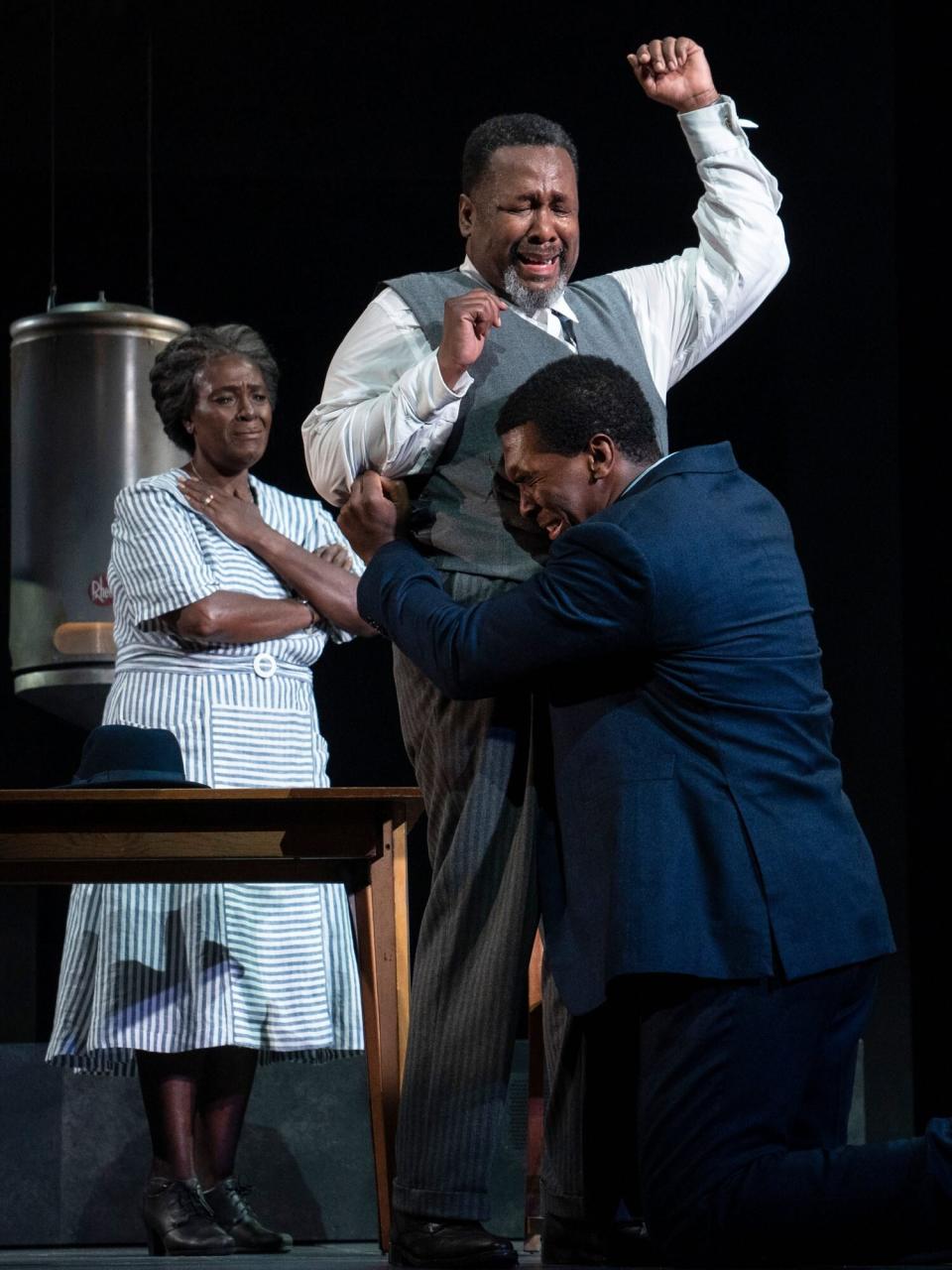
Joan Marcus
Biff's been crushed under his father's weight of expectations, only to have his trust in him betrayed by an infidelity with some woman in Boston. Biff's angst feels more urgent because he's Black, as a new Black generation chafes against the expectations, and the limitations, of the old. Race, however, is never explicitly dealt with. This production would almost have benefited from a more contemporary setting, the issue of race feeling too big to tackle, as if it's the elephant in the room we only allude to every now and then. In one scene, Willy intimates that he heard his colleagues refer to him as, not a "shrimp" or a "walrus," as in other versions of the play, but the N-word. It's never said, Willy makes only a "Pffft!"-like sound. The audience still gasped. In a club, Biff and Happy are placed in the back room, away from the front of the house, and it's understood why.
The subtlety of the race question feels out of place in 1949, at least from a modern vantage point. For Willy and Linda, one could understand this refusal to name the beast, but in Biff's rebellious spirit, the angst would have a name. But to introduce all that feels too heavy for a play that's already three hours and 10 minutes of monologues and suicide. Still, it feels almost like a missed opportunity to further explore for whom The American Dream was truly meant.
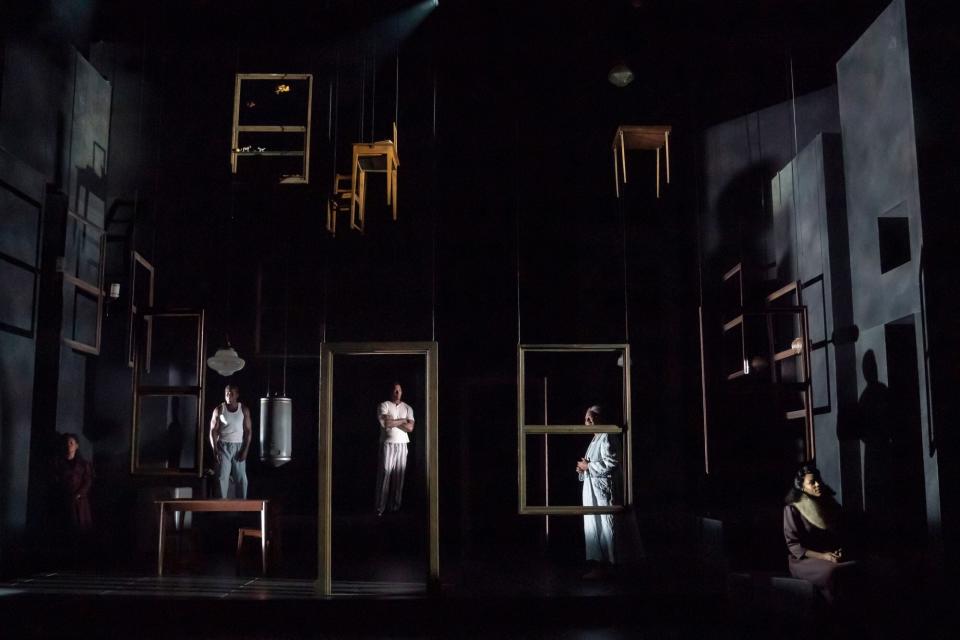
Joan Marcus
Even at three hours and some change, with one 15-minute intermission, Death of a Salesman hums along, thanks in part to Pierce's performance, but also credit must be paid to the kinetic direction by Miranda Cromwell, Anna Fleischle's wonderful set design, Jen Schriever's lighting design, and Mikaal Sulaiman's sound design. There's a musicality to this production that does make one grateful for the 1949 setting, with its emphasis on jazz as well as the few welcomed opportunities to hear Clarke's and De Shields' singing voices.
Nearly 75 years after it first premiered, Death of a Salesman still says more than we care to admit about America, about how one can work their entire life and end up with nothing, how you're worth more dead than you are alive, how the system is rigged against the little guy. Maybe the enduring message of this production is that these themes are universal, that we all suffer the same under the yolk of The American Dream. And that, in spite of the odds, we all aspire to be great. Grade: A-
Related content:

